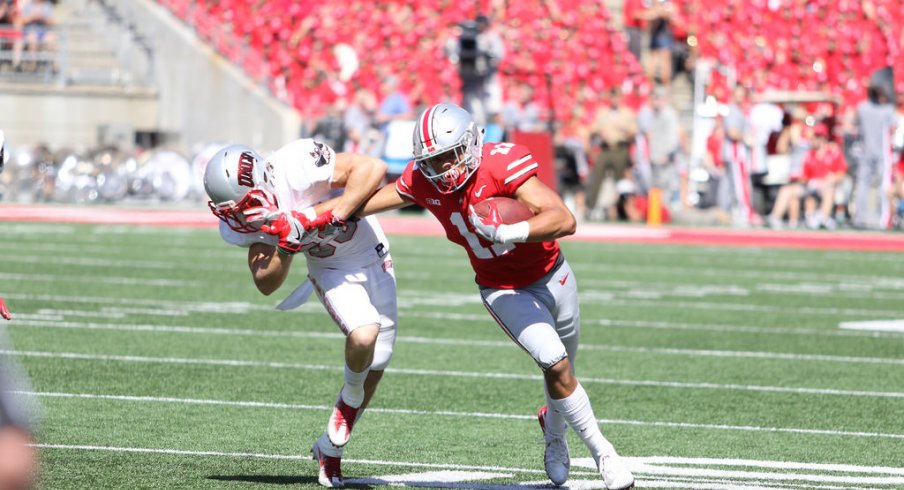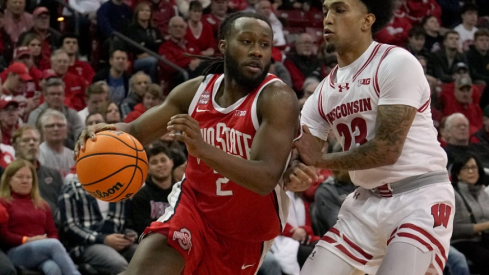Let's imagine the system.
About half of the NFL is now done with their second of four preseason games. Meanwhile, Ohio State is gearing up for contests this season against Tulane and Oregon State, two of the bottom-feeders in college football. What if, just what if, those games were "preseason" contests?
Teams like Alabama, Clemson, and yes, even Ohio State, have had cupcake games on their schedules for years. While the Buckeyes play Tulane, Alabama will take on Arkansas State, Louisiana-Lafayette, and the Citadel this season, while Clemson battles both Furman and Georgia Southern.
These games are eyesores. The powerhouse wins 99.9% of the time (although we enjoy it when they don't), and they don't exactly mean a ton to the winning university. For example, if Alabama trounces Arkansas State like they are supposed to do, it will be a "ho-hum" situation. If the Red Wolves somehow pull off the almost impossible upset, then Alabama will be mocked forever. It's simply a lose-lose for the Crimson Tide.
What if, however, the game didn't count? For starters, it would allow powerhouse teams the opportunity to play all players. Freshman could play without burning a redshirt (although the new rule makes this somewhat obsolete), walk-ons could receive significant minutes, and backup players could showcase their skills and earn an opportunity for a bigger role, while also ironing out their skills in the event they are needed in a big game.
If this were instituted, however, teams would be required to play only Power-5 teams out of conference, otherwise this whole thing is moot. Ohio State, for example, could play Pitt or Colorado or South Carolina instead of Tulane. Those teams, while not especially world-beaters, would certainly draw a bigger crowd and more interest.
Fewest noncon true road games since 2000
— Tom Fornelli (@TomFornelli) August 9, 2018
1. Alabama - 6
1. Arkansas - 6
3. Auburn - 7
4. LSU - 8
5. Tennessee - 10
6. Florida - 11
6. Ohio St - 11
8. K State - 12
8. A&M - 12
10. 4 teams tied at 13
Only including teams that have been at FBS level entire time
As seen above, power-five teams do not enjoy playing true road games. It is a rarity, and should be in this system. There is absolutely no reason for Ohio State to go out and play Alabama or Clemson on the road, when one loss could knock you out of the playoffs entirely. In this hypothetical system, every power-five conference would receive two automatic playoff bids (Notre Dame is required to join the ACC in this scenario) plus two bids decided by a committee for Group of Five teams, thus creating a 12-team playoff in the exact model of the NFL.
But how would teams decide who to play out of conference each year? Why wouldn't every team want to schedule Rutgers and Oregon State? The most obvious solution would be to do it like MLB interleague play, where leagues cycle through each other. For example, the Big Ten would play the SEC one year, and the ACC the next, and so on. From there, matchups would be drawn randomly. With five conferences, however, it could get a little complicated. In that scenario, since some teams have more conferences than others, the fifth conference would play the overflow teams, or the best teams from the Group of Five, once again decided by a committee before the season a-la- AP vote style.
For those wondering how a 12-team playoff could work without drastically expanding how long the season takes, one solution is to eliminate the conference championship game, since both of the top-two teams from the conference now automatically make the playoffs. In the event of a tie between two teams, the obvious solution is to now go by out-of-conference record.
While there are a lot of steps to potentially making this a reality, it would simply be better for college football if Furman and The Citadel stayed away from power-five campuses.


